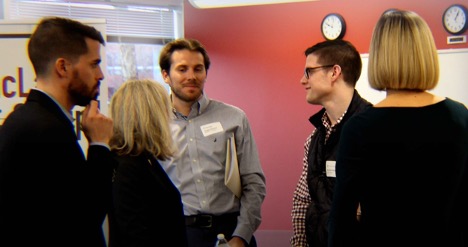
Take a moment and think about all the success you’ve achieved in your life. Did you do it all by yourself?
I am willing to bet your answer is no. You had support from investors, advisors, and mentors—people who inspired you, taught you, and shaped you into the person you are today.
Having benefited from the help of so many people when you were a young founder, you have a responsibility to pay it forward when you can. It’s never too early to begin investing in others, and there are so many ways you can do it—with money, knowledge, or time.
We all give back in different ways, but the result is the same: a rising tide that lifts all boats. When you support young founders, you don’t help just them, but yourself and the community as a whole.
Invest Financially
If you have the financial means, investing monetarily in young founders can be a very rewarding experience.
When I worked at Royall and Company, after every transaction, our founder, Bill Royall, encouraged everyone on the management team to take a portion of what we had made on the sale and invest it into a young founder in Richmond. That is how strongly he believed in paying it forward. We were not even finished celebrating a transaction before he would remind us it was our commission to pick somebody we believed in and give them a chance.
When you invest in young founders, I encourage you to support not only those you think will be successful, but those who align with your beliefs and values. Personally, I am especially eager to amplify the voices of people who want to make the world a better place, and I tend to gravitate to founders with a noble mission, who have plans to make other people’s lives better.
When you invest in alignment with your passion and what inspires you, it is far more rewarding.
Share Your Knowledge
If you can’t invest financially, you can still give back by sharing your lessons learned in the industry. No matter where you are in your journey as a founder, you have gifts, talents, and experience to share with others, and there are many different ways to do so.
One of the things I enjoy is hosting the Intimate Conversation Series at MacLaurin Group, where we cover relevant topics best suited for smaller gatherings. Some are dedicated specifically to entrepreneurs. I invite private equity firms to talk to founders without any expectations on either side. Entrepreneurs can ask questions, gain valuable information, and seek feedback without the pressure of pitching themselves.
I’ve also served as a guest lecturer, speaking to the classes of one of my past professors and mentors, Roger Schnorbus, in the MBA program at the University of Richmond.
If you are interested in being a guest lecturer or adjunct faculty, reach out to universities, talk to them about programs they have coming up in the next year, and let them know you have an interest. That way, they can be thinking about how best to use you in the curriculum in advance.
If neither of these ideas strikes your interest, you could also write articles, do a podcast, make YouTube videos, or attend local entrepreneurship or industry groups in your area. You could also serve on an advisory board. Advisory boards need members with fresh perspectives, and especially those who are passionate about the mission of the organization.
Be a Mentor
One of the best ways you can pay it forward is to become a mentor. When you mentor, you directly contribute to the success of future leaders.
Being a good mentor does not mean you have all the answers and now you are willing to teach them to someone else. It simply means you’re willing to put in the time and effort to share your experiences and insights. It can be as simple as participating in heartfelt conversations.
While mentoring, remember that one of the most positive impacts you can have on a founder is giving them a glimpse not only of what made you successful but also of times you failed. When a young founder hears about those, they get an invaluable perspective. They understand that even someone with lots of experience can make embarrassing and expensive mistakes.
They also get to hear how you got through it, how you pushed on and turned something really bad into something good. Stories like that can encourage founders not to give up.
It’s also important to note that mentorships are not a one-way street. Young founders and entrepreneurs have skills and experience to bring to the table as well. I do not think of mentoring as just telling founders how to run their business. I think of mentoring as learning from each other.
Return on Investment
Giving back is important for altruistic reasons but doing so is also beneficial in other ways.
When you support up-and-coming founders, you have a say in the future of businesses and business practices. It’s also a great networking opportunity. In my work giving back, I’ve been able to recruit potential new hires with a passion for the industry, as well as make connections with founders who later became clients.
On a deeper level, giving back brings joy. We all desire to have an impact, so when you support young founders, it can be very fulfilling. In that way, when you invest in others, you truly do invest in yourself.
Start your commitment to serving others early. Do not fall into the trap of self-doubt that you do not have enough experience or wealth to become involved. You do, and your support will be appreciated. And remember: a rising tide lifts all boats.
For more advice on supporting young founders, you can find Courage to Lose Sight of Shore on Amazon.

